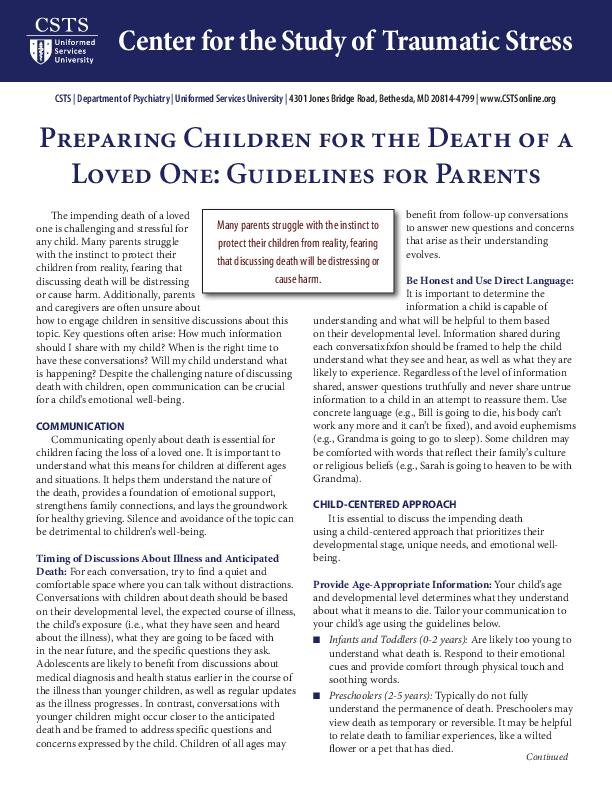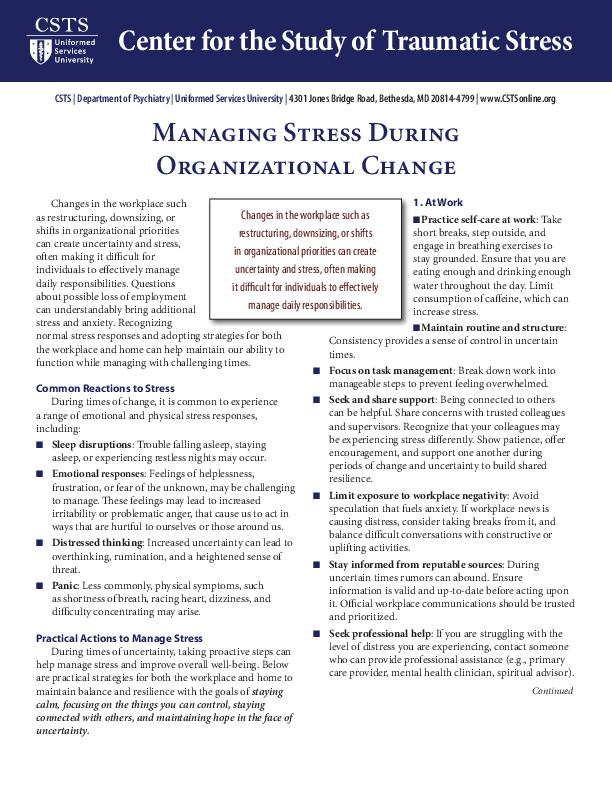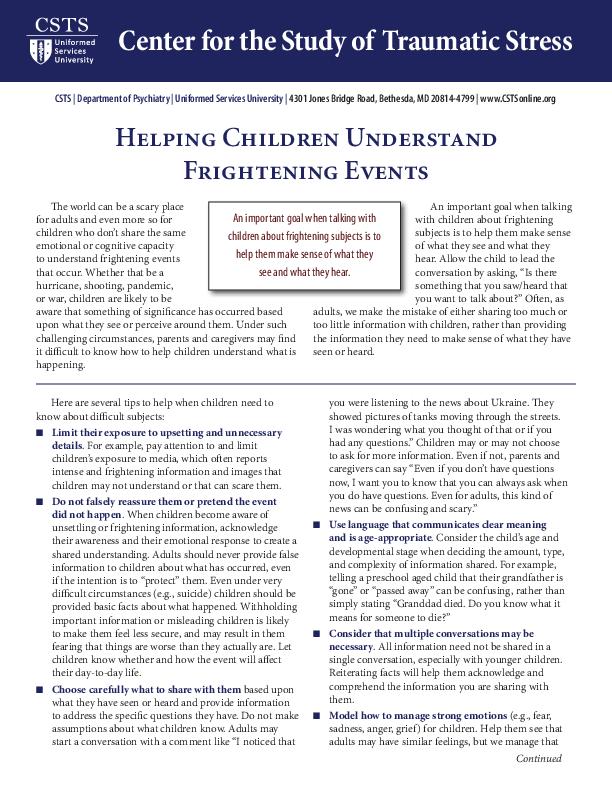|
|
Director’s MessageOur Center advances trauma-informed care through cutting edge research, education and training, and resources that draw upon our expertise in military and disaster psychiatry. . . . [more] |
DISASTER EVENTS
ISRAEL-HAMAS WAR MENTAL HEALTH RESOURCES
WAR IN UKRAINE MENTAL HEALTH RESOURCES - 3 videos added April 2024
Fact Sheets
 |
|
Publications
 |
|
Education and Training
 |
|
Research
 |
What’s New?
Preparing Children for the Death of a Loved One: Guidelines for Parents
Many parents struggle with the instinct to protect their children from reality, fearing that discussing death will be distressing or cause harm.
Please click HERE for fact sheet
Brain, Behavior, & Mind 2025 Spring Conference
Tuesday, April 22, 2025, 9:00 - 4:15pm ET
Brain, Behavior, & Mind is a series of global forums featuring distinguished scientists, clinicians, and leaders whose work spans neuroscience, psychiatry, psychology, and public health. Each event explores new insights in our understanding of health and illnes
The conference is sponsored by the CSTS, in collaboration with USU’s Department of Psychiatry, Neuroscience Program, Department of Family Medicine, Center for Deployment Psychology, and Brain and Behavior Hub.
Registration now open for the Brain, Behavior, & Mind 2025 Spring Conference on April 22, 2025. This event will feature presentations, and live, moderated panels with the featured speakers, as well as a poster session. Continuing Education is available for physicians, psychologists, and social workers. (see website for details).
Managing Stress During Organizational Change
Changes in the workplace such as restructuring, downsizing, or shifts in organizational priorities can create uncertainty and stress, often making it difficult for individuals to effectively manage daily responsibilities.
Please click HERE for fact sheet
Aircraft collision on the Potomac River in Washington, D.C.
Catastrophic disasters, such as the aircraft collsion on the Potomac River in Washington, D.C., cause extreme disruption and can be distressful for individuals, families, and communities. Actions that promote the five essential elements of Psychological First Aid (safety, calming, connectedness, efficacy, and hope) can reduce individual distress and foster community sustainment through this event, as well as other disasters. Members of the community can help reduce adversity and chronic stressors by helping friends and neighbors impacted by this event. Please click HERE for easy-to-use education fact sheets with recommended actions to protect the mental health and well-being of individuals and communities impacted by the plane crash.
World Trade Center Survivor Grief Study
Although there have been many studies examining the traumatic effects of 9/11, there has been limited focus on the impact of bereavement on those affected by the tragedy. Given the trauma that all 9/11 WTC Survivors faced, it is likely that those who were bereaved on 9/11 or suffered subsequent deaths face additional challenges. The goal of this study is to examine the combined effects of bereavement and trauma on the health-related quality of life among 9/11 World Trade Center (WTC) Health Registry Survivor Enrollees. Please click HERE for more information












